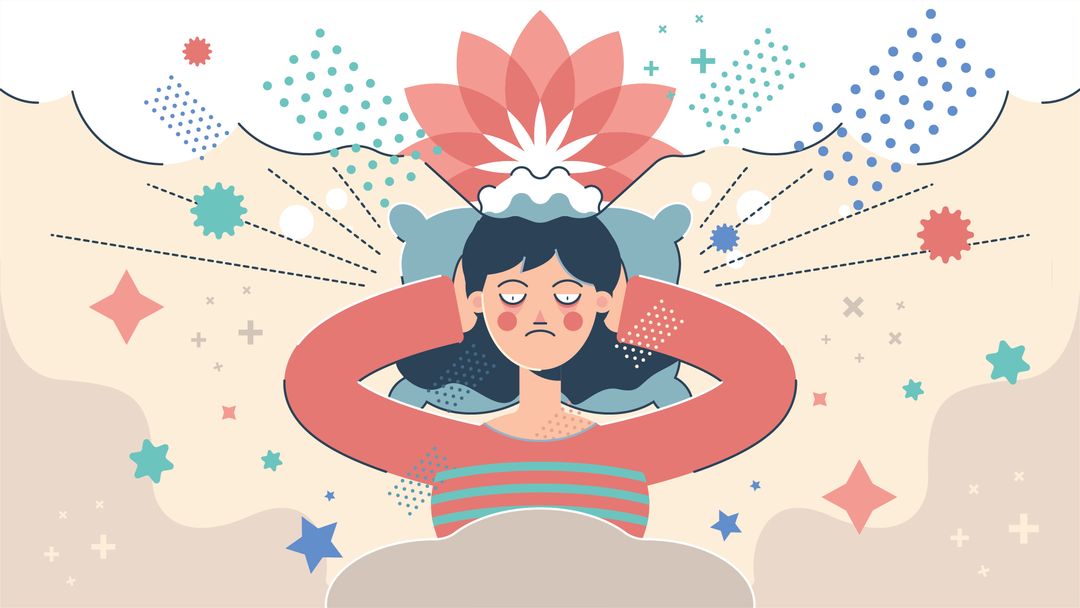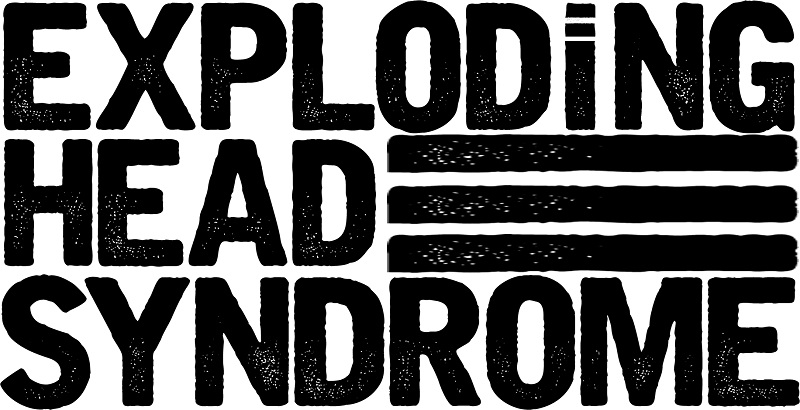Exploding Head Syndrome
'Exploding head syndrome'? Inside a mysterious, disturbing sleep condition
This little understood disorder leads some to hear loud crashes or booms as they're drifting off to sleep.
A musician and guitar luthier who's no stranger to loud noises, Dave Lovos admits to being a bit undone by the boom he heard in his head one night earlier this year. It hit just as Lovos was drifting off to sleep, the force of it snapping him to attention.
"It was a very sharp sound inside my head at the top of my skull," says Lovos, and along with the deafening internal explosion he saw the flash of a car crash. "The two seemed to happen at once."
What Lovos experienced is known by the unscientific but evocative moniker "exploding head syndrome" (EHS), a mysterious example of a parasomnia, or sleep disorder. Parasomnias include sleepwalking, sleep talking, sleep paralysis, and pesky muscle spasms known as "myoclonic jerks." In most cases, these parasomnias are normal and harmless, except when physical danger or pain is involved.
"My office would be a lot messier if heads were actually exploding," says Brian Sharpless, a licensed clinical psychologist who specializes in sleep. Sharpless is among the handful of psychologists and others researching EHS. He says the condition is harmless.
"As long as you're not having pain during [an episode], it's not anything really to worry about," he says.
What causes the condition
Very few people who experience EHS seek medical advice, or even bring it up to their doctors or loved ones, says Sharpless.
In one study, only 11 percent had reported EHS to a professional, and only eight percent of patients with recurring episodes sought prevention. Some are embarrassed about admitting to "hearing noises"; most go on with life when there's no sign of continued distress or pain.
Jennifer McDonald Slowik, sleep medicine physician with Frederick Health Medical Group in Frederick, Maryland, and board member of the Maryland Sleep Society, also says it is uncommon for someone to seek EHS treatment.
EHS usually comes up as part of a sleep clinic's extended evaluation, she says. "We usually ask questions about narcolepsy," symptoms of which can include hallucinogenic sounds.
"If there is any concern about something more serious, we do an [additional test] as part of a sleep study to make sure nothing else is there," she adds.
Like Slowik, Sharpless warns that diligence is always the best policy when it comes to the head. In the worst-case scenario, EHS with pain could be a sign of the more dangerous and deadly subarachnoid brain hemorrhage.
Usually lasting less than a second, the first misconception about EHS is its timing: Rather than waking a person up, EHS is experienced in the ephemeral moment of the "sleep-wake" transition before slumber, known as the "hypnagogic state."
According to Sharpless, studies, including those with EEG brain monitoring, have yet to identify EHS activity during sleep. Rather, it is thought to be a type of neuronal misfiring as the brain begins to shut down areas associated with awake-time auditory, visual, and motor activity.
"You could even say they were just in a state of being really, super relaxed," he adds. "That's when it seems people have these events."
By loose definition, EHS is an "auditory hallucination," and in clinical terms expresses itself as a "paroxysmal sensory parasomnia," or sleep disorder presenting as a "sudden outburst" of sound. EHS is not tinnitus, a common misconception.
Crashes, gunshots, and slamming doors
Lovos heard something akin to a car crash, which is among the many descriptions given by EHS study participants. The range of examples is broad, but the end results are the same: disturbing noises.
Among the many common descriptions, as told to researchers including Sharpless, people hear an explosion or bomb; a door slamming; something hitting the wall; a gunshot or fireworks; metal pans banging together; a scream; waves crashing; lightning; "an enormous roar"; cars driving by.
"You're not hearing symphonies, you're not hearing articulate speech, you're hearing big, massively loud noises," said Sharpless. He says the best description he’s heard is a patient who described it as "Wily Coyote trying to drop a piano on the Road Runner."
EHS was first named and discovered in 1876 by Philadelphia neurologist Silas Weir Mitchell, who wrote of patients who had heard "gunshots" and "pistols." He called the phenomenon "sensory shock." In the 1980s, neurologist J.M.S. Pearce changed it to EHS. Sharpless and colleague Peter Goadsby, a neuroscientist at King’s College London, are pushing for a name change to "episodic cranial sensory shock."
Pearce, who gave EHS its name in 1989, reported "little evidence of relevant past illness and no other CNS [central nervous system] disease in evidence, adding, "It is entirely benign, and I suspect quite common, but underreported."
"What causes the bomb-like noise remains a mystery," wrote Peace, an observation that Sharpless and other researchers also conclude three decades later.
Classified as a sleep disorder in 2005 by the American Academy of Sleep Medicine, the small number of studies to date have dismissed earlier clinical claims that women over 50 were more prone to EHS. Data today show that the incidents are almost equally divided among men and women. In a study out of Washington State University, authored by Sharpless, upwards of 13 percent of college students reported at least one episode.
While EHS has been "named" since the mid-1800s, records of earlier occurrences are missing, with one exception. One 2018 paper suggested that 17th century philosopher Rene Descartes had a head explosion between two dreams that he said helped answer the question, "What path in life should I pursue?”
"Despite being harmless, those affected are understandably concerned that it may be a sign of a serious brain condition," the paper noted, "and they usually feel too embarrassed to talk about their experience in case they are judged or disbelieved."
Source
https://my.clevelandclinic.org/health/diseases/21907-exploding-head-syndrome-ehs#:~:text=Exploding%20head%20syndrome%20(EHS)%20is%20a%20type%20of%20sleep%20disorder,wake%20up%20during%20the%20night.
https://en.wikipedia.org/wiki/Exploding_head_syndrome
https://www.ncbi.nlm.nih.gov/books/NBK560817/
https://www.sleepfoundation.org/parasomnias/exploding-head-syndrome
https://www.webmd.com/sleep-disorders/exploding-head-syndrome








































